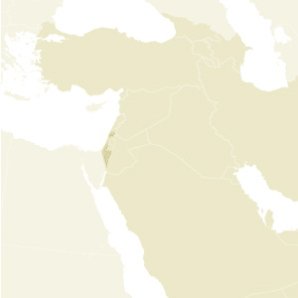
Israel is planning to attack Lebanon, either at the end of Ramadan, in mid-April, or maybe even sooner. Its purported aim is to create a buffer zone within Lebanese territory south of the Litani River, as it tried unsuccessfully to do in 2006. The initial stage is the systematic destruction of all the infrastructure built in this area by Hezbollah over the past fourteen years.
So as to ward off any war crimes accusations, the IDF dropped leaflets over the area, which read: “Citizens of southern Lebanon, Hezbollah jeopardizes your lives, your families and homes. Hezbollah members implant themselves and their arms depots in your neighborhoods.” Thus, they can claim that they did not target civilians but, on the contrary, warned them in advance.
Since the beginning of Operation Swards of Iron, the IDF launched air strikes against 4,500 targets, mostly located in the South, but also in Baalbeck, while sparing the other sectors of Lebanese society. The Netanyahu government hopes that the country’s social rifts will gradually lead to the erosion of the Party of God’s support base, without provoking a conspicuous reaction. It claims to have already eliminated 300 Shiite fighters, while Hezbollah acknowledges 244.
IDF Unit 8200 intercepts all Lebanese telephone and internet communications as well as almost all private security cameras. By cross-checking the information, it manages to pinpoint almost all of its human and physical targets. For example, this is how Hamas leader Saleh Al-Arouri, opposed to the Muslim Brotherhood, was located and assassinated, in January, in a Beirut subsurb (see 0001).
At the same time, Israel is gearing up for a major response from Hezbollah. It has just purchased port facilities in Larnaca (Cyprus) in anticipation of the Haifa port destruction [1]. These facilities will, in any case, subsequently be used to establish the transport corridor linking India to Europe, via Israel.
Likewise, numerous underground parking lots have been set up in the north of the Jewish state to accommodate civilians in the event of bombings. In addition to the installation of sanitary facilities, ventilation ducts, medicines and furniture, food for two days will be stored there.
[1] מחשש לשיתוק נמל חיפה : ישראל תקים נמל, Israel Hayom, 11 March 2024.


















Stay In Touch
Follow us on social networks
Subscribe to weekly newsletter